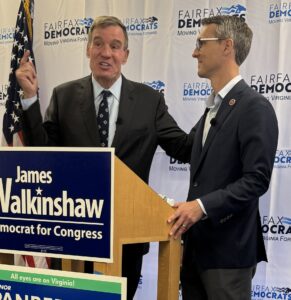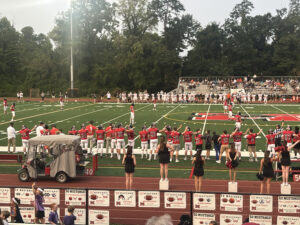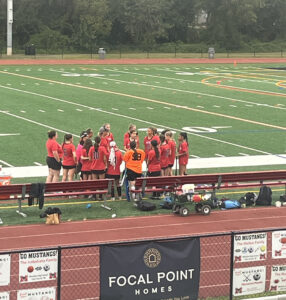Lost in most reports of the current budget struggles by regional jurisdictions has been the new option approved in Richmond last year to raise the commercial real estate tax rate above that of residential real estate. In these tough fiscal times, the focus has been entirely on the residential real estate tax rate, with ample coverage on the fact that both Falls Church and Fairfax County project a three-cent increase.
Both jurisdictions are slated to adopt budgets for the fiscal year beginning July 1 by the end of this month.
But the new commercial tax hike option was included as part of the package signed into law last year to generate significant new revenues for transportation. While the bulk of that transportation funding package fell by the wayside when pronounced unconstitutional by the Virginia Supreme Court earlier this year, the commercial real estate tax option remained intact.
So did the abusive driver fees, which were so unpopular the legislature voted to rescind them last month.
Now, area jurisdictions are planning to go ahead with the commercial tax hike option even though it is not now tied to transportation funding, per se.
According to Fairfax County Supervisor Linda Smyth, speaking at a luncheon of the Falls Church Chamber of Commerce and the Merrifield Business Association in Falls Church Tuesday, Fairfax County has advertised a whopping 12-cent increase in the commercial real estate tax rate for the county.
While the county budget has not yet been finalized by the Supervisors, she indicated that the 12-cent increase will probably be included in the final package. Others reported that Arlington County is planning a nine cent increase.
On the other hand, Falls Church City Manager Wyatt Shields, also at the Chamber-Merrifield luncheon, noted that no separate increase in the commercial real estate rate is included in the City of Falls Church’s current budget deliberations. Nor will it be, as by law, jurisdictions must advertise in advance the highest tax rate they may or may not adopt for the coming year.
The Falls Church Chamber of Commerce’s board of directors went on record last year opposing the use of the commercial tax hike option, fearful that it would fall unfairly on small business tenants of commercial real estate properties. It argued that landlords would simply pass through the higher tax to their tenants who, in the case of Falls Church, are predominantly small businesses struggling to meet their bottom lines.
A Chamber board member verbally thanked the City of Falls Church at Tuesday’s luncheon for not including the commercial tax hike option in this year’s budget.
Some noted, however, that the City should be thanking the Chamber instead, since the Chamber’s staunch support for new, large-scale mixed-use projects in the City’s commercial corridors has helped bring new tax-generating development that has eased the City’s budget pressures even in the developments’ early stages.
Ironically, in Falls Church, despite the flatlining of residential real estate values requiring a three-cent increase in the tax rate from $1.01 per $100 of assessed valuation to $1.04 (with the final vote on the new budget coming April 28), the average tax bill for a City residential property will actually decline in absolute terms by $112.
Meanwhile, even though the City’s schools will eliminate the equivalent of eight non-classroom positions under the new budget, the School Board, Superintendent Lois Berlin, also present at Tuesday’s meeting, and the Falls Church Educators Association have all expressed confidence that the quality of the system will not be adversely effected by the tight budget this year. On the contrary, the budget allows for certain strategic gains in the system, such as the extension of the International Baccalaureate Primary Years curriculum to the elementary school level.
Tuesday’s luncheon featured a “Richmond legislative report” by area legislators State Sen. Mary Margaret Whipple and Del. Jim Scott. Del. Bob Hull, who was also scheduled to appear, was ill and did not attend.
Among other things, Scott reported on the town meeting held by Gov. Tim Kaine at the Luther Jackson Middle School last Saturday, noting that Gov. Kaine made it clear that at the upcoming special legislative session to hammer out a new transportation funding formula, he will not accept placing the burden on regions or localities, but will require a comprehensive statewide approach.
“This was a very important statement,” Del. Scott said.













